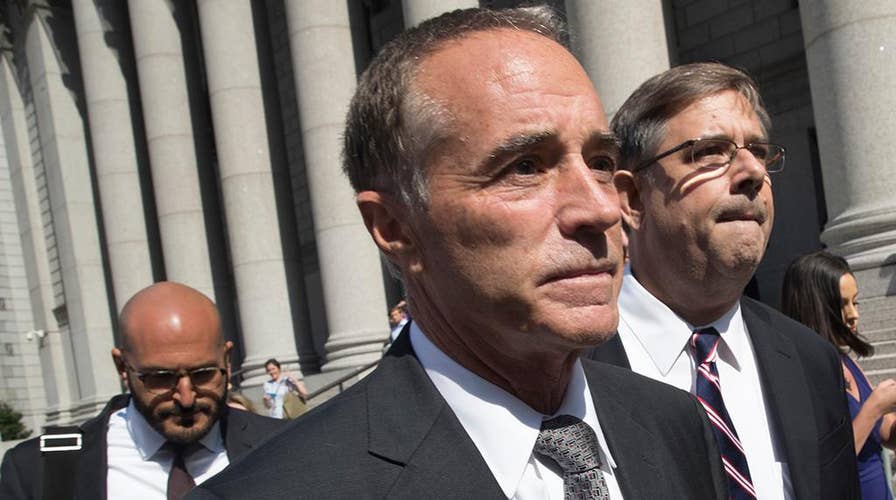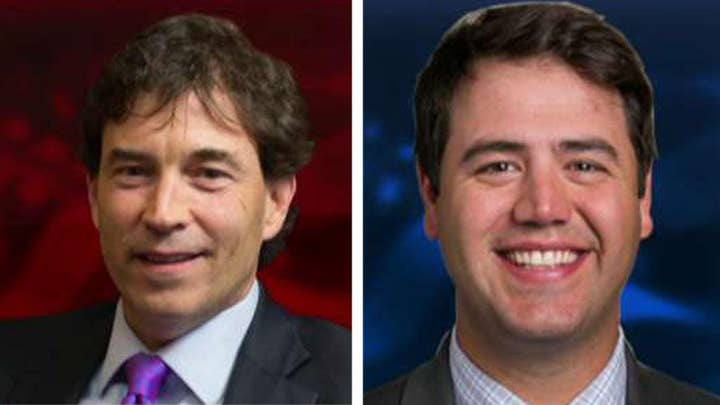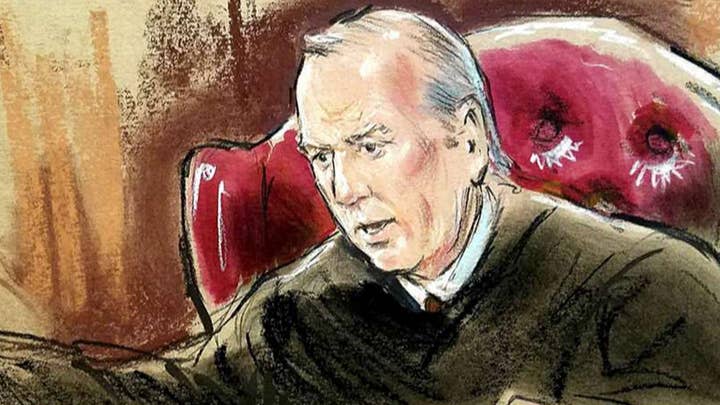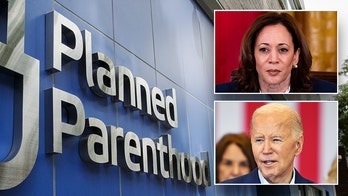Rep. Chris Collins pleads not guilty to insider trading
Prosecutors allege the Republican congressman, along with his son and the father of his son's fiancee, avoided over $768,000 in losses by selling stock in a biotechnology company where Collins served on the board ahead of the public announcement of failed drug trials.
Shakespeare warned “Beware the Ides of March” in Julius Caesar. March 15th, to be exact.
But if the Bard were writing about the news business, he may write “Beware of August.”
August is but four weeks. But most who cover the news know that August is often the most-volatile month on the calendar.
I mean, can you name another month where a herd of goats escaped and marauded around a major American city?
Case closed.
The political news is often the zaniest in August. That’s weird because the House and Senate are typically out of session for at least a good chunk of the month. Such is the case again this August. But nothing can exist in a vacuum. Hence, where the strange political news unfolds.
Consider this month. The American political world focused on central Ohio. Republican Troy Balderson faced Democrat Danny O’Connor in a special election to succeed former Rep. Pat Tiberi, R-Ohio, who resigned. The results remain too close to call. Observers view this contest as an intriguing barometer by which to gauge the American electorate right before the midterm elections this fall.
Then, the arrest of Rep. Chris Collins, R-NY, on securities fraud.
Consider the other major political landmarks in August.
President Warren Harding died unexpectedly in San Francisco in August, 1923.
President Truman ordered nuclear bombs dropped on Hiroshima and Nagasaki in August, 1945, effectively ending World War II.
The East German government split Berlin in August, 1961, with the 12-foot Berlin Wall.
Congress approved the Gulf of Tonkin Resolution in August, 1964 following the attack on two American destroyers by North Vietnam. The vote solidified the country’s entrance into the Vietnam conflict.
Martin Luther King delivered his “I Have a Dream Speech” on the steps of the Lincoln Memorial in Washington in August, 1963.
President Nixon resigned in August, 1974, facing likely removal from office by the Senate amid Watergate.
The calendar still read August 31 when the Soviets shot down a South Korean commercial jetliner in August, 1983. The incident killed 269 people on board, including Rep. Larry McDonald, R-Ga. Some historians wonder how the incident didn’t spark World War III.
Iraq invaded Kuwait in August, 1990. That led to the Gulf War in 1991. The U.S. has been involved in Iraq ever since.
Soviet hardliners staged a brief coup in August, 1991, removing Mikhail Gorbachev from power. The Soviet Union crumbled by the end of the year.
Hurricane Katrina whipped the Gulf Coast in August, 2005. The storm forever altered the trajectory of President George W. Bush.
Raucous Congressional town hall meetings over health care punctuated August, 2009, giving rise to the tea party. The tea party movement helped propel Republicans to power in the House of Representatives in the 2010 midterms, serving as a check on President Obama.
Sen. Ted Kennedy, D-Mass., died in August, 2009.
Sen. Ted Stevens, R-Alaska, died in a tragic plane crash in Alaska a year later, in August, 2010.
In August, 2011, Congress struggled to approve a debt ceiling increase to sidestep an economic catastrophe. But bigger news actually hijacked the House vote to increase the debt limit that month: The triumphant return to Congress by then-Rep. Gabrielle Giffords, D-Ariz., shot in the head earlier that year.
Standard and Poor’s downgraded the credit rating of the U.S. a few weeks later - the first such move in history.
Not many Augusts were as crazy as August, 2011. A magnitude 5.8 earthquake even rocked Washington that year. The temblor did minor damage to Congressional buildings.
The Senate was forced to meet that day in a federal building just a few blocks from the Capitol. The Architect of the Capitol and fire marshal conducted a safety check of the building. It marked one of the few times either the House or Senate met outside the U.S. Capitol in more than 200 years. Congress met at Federal Hall in New York in 2002 to mark the anniversary of the September 11th terrorist attacks a year prior. Congress met in Philadelphia in 1987 to observe the bicentennial of the Constitution. Congress regularly convened in New York and Philadelphia prior to the 19th Century.
And last August, there was the major conflagration over race in Charlottesville, VA. Critics decried President Trump’s remarks about the melee on August 15th - “Ides of August.”
Both political parties often hold their quadrennial nominating conventions in August. That alone constitutes a trove of political news.
And there are also the “non” political stories which commandeer the August news cycle: The Beatles played their legendary concert at Shea Stadium in August, 1965. Hippies and rock music lovers gathered at Max Yasgur’s farm in Upstate New York in August, 1969 for Woodstock. Elvis Presley died in August, 1977. Major League Baseball Commissioner Bart Giammati banned Pete Rose from the game in August, 1989. Princess Diana died in August, 1997. A major commuter bridge in Minneapolis collapsed in August, 2007.
So what lurks this behind the calendar this month? A verdict in Paul Manafort’s federal trial? More indictments by Special Counsel Robert Mueller? Maneuvers by the House Freedom Caucus regarding efforts to impeach or hold Deputy Attorney General Rod Rosenstein in contempt of Congress over the Russia probe? Drama about the next Speaker of the House or Congressional leadership races on both sides of the aisle? Are there more questions surrounding what Rep. Jim Jordan, R-Ohio, knew regarding alleged sexual abuse when when he was an assistant wrestling coach 30 years ago at Ohio State University? Developments in the trade war over tariffs? Another threat by the President to shutter the government over his border wall? Issues about immigration and family separations? A dustup with North Korea?
And don’t forget: the Senate is taking an abbreviated break this month. Senators will return on August 15 to address a defense spending bill and other nominations. There’s a big fight over documents regarding the nomination of Brett Kavanaugh for the Supreme Court.
To most, August is just a month on the calendar. But reporters know otherwise.
Just look at at what happened with the goats.
Capitol Attitude is a weekly column written by members of the Fox News Capitol Hill team. Their articles take you inside the halls of Congress, and cover the spectrum of policy issues being introduced, debated and voted on there.







